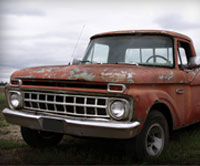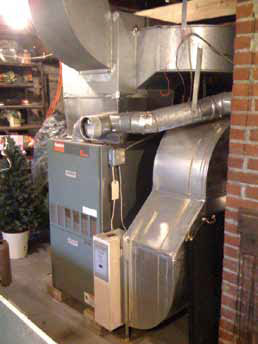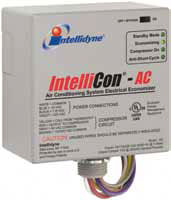In Business Since | License #
In Business Since | License #

For many years, the cost of electricity, natural gas and heating oil was low enough so that we didn't have to worry about our monthly utility bills. But today's growing global demand for energy has caused electricity and fuel prices to skyrocket. Many experts predict that fuel shortages and sudden price increases will occur more and more frequently in the future. Because heating and cooling account for almost half of your household energy budget, it's critical for your heating and air conditioning (HVAC) systems to work as efficiently as possible.

Some things will run forever... >but do we want them to?
Substantial in size and made from ample amounts of heavy-gauge steel, an old HVAC system has the same hulking, rugged beauty as a muscle car manufactured during Detroit's golden age. While the craftsmanship evident in your aging equipment may be admirable, the energy performance is anything but. If your heating or cooling system is over 12-15 years old, you can be sure it's wasting energy. It's time to retire this equipment and start saving energy with an efficient, state-of-the-art system.
In terms of energy efficiency and home energy saving, an old HVAC system is like a vintage auto that can only get 12 miles per gallon. Modern HVAC and heating equipment (boilers, furnaces) is just as miserly with electricity and fuel as a hybrid car is with gasoline.

After improving your home's energy efficiency with air-sealing, additional insulation, and duct sealing, you'll be amazed at how much smaller your HVAC equipment can be.
Have you already improved your home's energy efficiency with air-sealing, additional insulation, and duct sealing? If so, you'll be amazed at how much smaller your HVAC equipment can be. Bigger HVAC units are definitely not better when it comes to heating and cooling your house. Dr. Energy Saver will make sure that a new HVAC system is sized right to match your home's improved energy profile.
Dirt is the #1 cause of HVAC system inefficiency. It's also the most common cause of a system breakdown or failure. Having your heating or cooling system professionally tuned-up every spring and fall is critical to saving energy. It also ensures smooth operation and helps you avoid a premature failure that could cost you thousands of dollars.
Even a new HVAC system should be regularly serviced by an HVAC contractor to maintain the efficiency for which you have paid. Just like anything mechanical, your system's efficiency begins to degrade the moment you start to operate it, so planned professional maintenance is a sure way to keep your system in tip-top shape. Dr. Energy Saver will check your system's critical components and make sure they're functioning safely and efficiently.

Your existing heating and cooling system can be made more efficient if Dr. Energy Saver adds specialized microprocessor controls designed to optimize system performance. Sometimes these controls utilize an outdoor temperature sensor and/or a living space temperature sensor to anticipate your home's heating or cooling needs and efficiently control your systems based on specific algorithms. If your system is newer, or if you're not ready to retire an older HVAC system, Dr. Energy Saver can add an optimizer control to make your existing system operate more efficiently until you're ready for a new system. And the great thing is, you can reuse your optimizer control when you do replace your system. It's a little investment that saves big all year long.
Looking for a price? Get a no cost, no obligation free estimate.